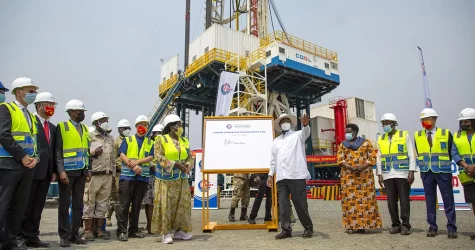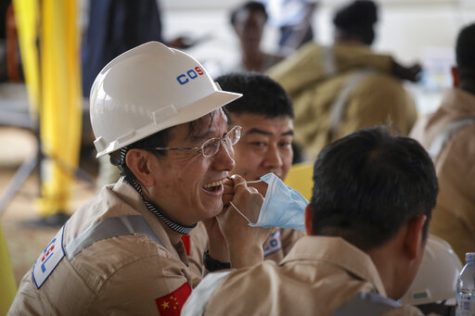Uganda Begins Oil Drilling Hopes for Production by 2025
March 17, 2023
Just as the world begins to make progress to stop the climate crisis, Uganda has begun production for an oil drilling plant that will reverse many of the world’s climate breakthroughs.

As the war in Ukraine continues to surge, so do gas prices throughout Europe. A new energy source is in great demand. Thus, Uganda has stepped up to the challenge as their Kingfisher oil field has just begun production of oil and plans to be fully operating by 2025. With backing from economic giant China, Kingfisher is estimated to produce 6.5 billion barrels of petroleum with 1.4 billion barrels that are recoverable and at its peak of around 40,000 barrels in a single day. Producing oil at Kingfisher will only cost $22 a barrel compared to the national average of $30. President Yoweri Museveni ceremoniously cut a ribbon on the oil site that marked a powerful new partnership between the China National Offshore Oil Company and Uganda. Not only does Uganda plan to create an enormous oil plant, but it also has developed six oil fields and an 897-mile pipeline due to a partnership between France’s TotalEnergies and the China National Offshore Oil Company. The East African Crude Oil pipeline will transport oil to treatment plants to be separated and treated and sold on a global market. This will be the first heated oil pipeline to travel such a great distance and Ugandan authorities predict it will bring great economic benefits that will boost millions out of poverty because extra electricity will be sent to the Ugandan grid.

This innovation does not come without its costs though. First off, 100,000 residents are at risk of displacement because of both the plant and the pipeline’s production and likely will not receive proper compensation. Secondly, the project raises major environmental concerns for local and global communities. Not only do local communities have to face an increased risk of oil leaks, but the entire globe faces the gaseous effects of the plant. Oil plants produce so much carbon dioxide that depletes the earth’s natural ozone layer and releases pollutants into the atmosphere that can be detrimental to human health. Lastly, this plant will put the delicate ecosystem surrounding the plant at extreme risk. Kingfisher and the pipeline are located near the Lake Victoria basin, national parks, and rivers. These ecosystems thrive with a large variety of organisms, but with the encroachment of oil fields, these fragile ecosystems are put at major risk.
The European Union’s need for oil has not stopped them from pressuring the end of this oil production. The EU asked international delegates to put pressure on the Ugandan supporters of the oil project and called for its end to protect the environment.
With Ugandan police blocking open discussions about the environmental impacts of the oil fields, citizens worry that oil drilling might become a curse for Uganda and its government.


